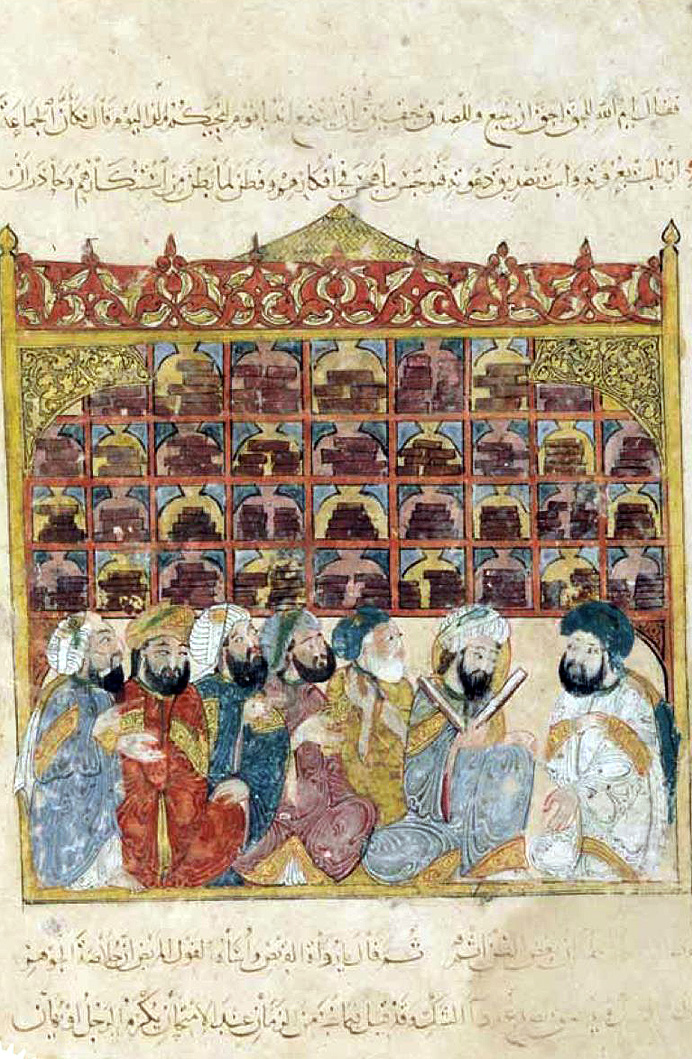Table Of Content

He’d had a hard time holding onto his faith after the horrors he’d witnessed, and hadn’t kept mitzvos since his childhood. Eventually, we gave up on trying to get into the official facilities, and instead, searched for elderly people living at home. We were their only visitors in a world gone silent, and they treasured each moment of our interactions. We’d been sent to visit hospitals and nursing homes, but they had strict regulations that prohibited any non-essential visitors. They wouldn’t even let us send food and care packages in, since at that time, it was widely believed that the virus could be passed through objects.

Grier Musser Museum
How to find the Assassin's Creed Mirage Excavation Site location - Gamesradar
How to find the Assassin's Creed Mirage Excavation Site location.
Posted: Mon, 11 Dec 2023 08:00:00 GMT [source]
One writer has estimated that some private libraries were bigger and richer than public or private, libraries in Western Europe. However it was not the norm for the well-to-do people to leave their libraries open to public or to endow them for users. The example of the house of wisdom was remarkably followed and its influence appeared when other many public libraries have emerged all the way from Bokhara and Merv, in the heart of Asia, on the route to China through Basra and Damascus, Algiers and Cairo. The famous geographer Yaqut al-Hamawi who had visited Merv in the late 1220s, found more than twelve libraries there opened for public.
This Assyrian Teenager Is Recreating Artworks Destroyed By ISIS
They studied the works of Aristotle, Plato, Hippocrates, Euclid, Ptolemy, Pythagoras, Brahmagupta and many others. Then, they began building on and testing the knowledge of the greatest ancient scholars, resulting in the development of the scientific method of observation and experimentation. It was even said that translators were awarded the weight of each successfully completed book in gold. The philosopher apparently urged the caliph to preserve the knowledge of ancient civilisations by gathering classical literature and sponsoring translation. The second was to dispatch missions to emperors and other rulers throughout the empire to facilitate the gathering of valuable manuscripts, such as the 2nd-century astronomical treatise by the Greek scholar, Ptolemy, whose English name, Almagest, derives from its later Arabic translation. Immediately upon taking power, he commanded his vizier Yahya al-Baramika to transfer part of the palace’s private library into a public space.
Fore! Perfect your swing at these 9 pleasant L.A. public golf courses
Note that these works would later become standard textbooks of medicine during the Renaissance. With all other libraries in Baghdad, the House of Wisdom was destroyed by the army of Hulagu during the Siege of Baghdad. The books from Baghdad’s libraries were thrown into the Tigris River in such quantities that the river ran black with the ink from the books. Nasir al-Din al-Tusi rescued about 400,000 manuscripts which he took to Maragheh before the siege.
Halls of Ancient Wisdom: 7 Remarkable Ancient Libraries
There has been different opinions on the identity of the founder of the Abbasids' House of Wisdom. He was the first caliph who motivated Muslims to study sciences and develop them, he also advised them to translate books from Persian, Greek, and Indian languages. Among the books that al-Mansur initiated their translations were the book of Al-Sind Hind a book on mathematics and a huge collection of Aristotle, Euclid and of Claudius Ptolemy writings. The House of Wisdom included a society of scientists and academics, a translation department and a library that preserved the knowledge acquired by the Abbasids over the centuries. They also researched and studied alchemy, which was later used to create the structure of modern chemistry.
Translation
The foundation of Bayt al-Hikmah coincided with the rise of Baghdad as the capital of the Islamic world and the subsequent reception of Persian culture into the Arab court of the Abbasids. The site of Baghdad was chosen by the second Abbasid caliph, al-Manṣūr (reigned 754–775), to replace Damascus, whose status as the Umayyad capital had made it difficult for the new dynasty to fully uproot the one that it had overthrown in 750 ce. But Baghdad, located near the former Sasanian capital of Ctesiphon, was also in the heart of a predominantly Persian populace. Instead of repressing what remained of Sasanian society, al-Manṣūr absorbed it into the new bureaucratic structure and portrayed Abbasid rule as the revival of the Sasanian empire. Stories like this make me understand just why the belief system of Islam is considered to be ‘ok’ & not a problem to so many Westerners.
Famous People
But the great humanist also advanced the frontiers of knowledge by commissioning the translation of his trove of literary and scientific works into Arabic. What was now known as Bayt al-Hikmah (the House of Wisdom) soon attracted scholars from far and wide, and rapidly expanded to include a translation house, an observatory, and accommodations for visiting scholars. Before that decision, the works were exclusively reserved for court scholars, however now the library could be accessed by general public. The eighth-century mathematician al-Khwarizmi (who introduced what later came to be known as Arabic numerals), the astronomer Yahya ibn Abi Mansurh, the philosopher al-Kindi, and the mystic al-Hallaj, were all regular patrons of the library. Bayt al-Hikmah, royal library maintained by the Abbasid caliphs during their reign in Baghdad. At Ancient Origins, we believe that one of the most important fields of knowledge we can pursue as human beings is our beginnings.
Foursquare Heritage Center - McPherson Parsonage
The research has dealt with funding sources and the budget that the state caliphs dedicated to the library. The study found out that, the house of wisdom has had a very organized administration and affair management system. In addition, new competing libraries have been influenced by the system of the house of wisdom in Baghdad which resulted in the emergence of newfound libraries in Egypt, Maghreb and Andalusia.
Activity: Quiz – Early Islamic inventions
DollarDaily.org is proud to present IllumiNations, a new weekly PDF for your Shabbos table featuring stories direct from the frontlines of shlichus. Since its inception in October 2021, DollarDaily is now distributing over $725 each day to different Chabad centers worldwide – all from people donating $1. Baruch Hashem, by the time we were married and ready to look for a shlichus position, almost every inch of Los Angeles was already covered by a dedicated shliach. If you enjoy exploring the historic homes of famous, and not-so-famous people, there are a number of historic residences in Southern California that are open to the public as museums. Most of them are City, State and National Historic Landmarks There is some overlap with LA Local History Museums. By fostering an understanding of the pivotal role played by the Arab world in shaping modern science, this resource empowers students to appreciate the diverse historical influences that have shaped our contemporary society.
Furthermore, linked to it were also astronomical observatories and other major experimental endeavors. Institutionalized by Al-Ma’mun, the academy encouraged the transcription of Greek philosophical and scientific efforts. Additionally, he imported manuscripts of important texts that were not accessible to the Islamic countries from Byzantium to the library. The House of Wisdom was much more than a library, and a considerable amount of original scientific and philosophical work was produced by scholars and intellectuals related to it.
By the thirteenth century, Baghdad had thirty-six libraries and a 100 book dealers, some of whom were also publishers. The concept of a library catalog dates back to this period; books in these libraries were organized under specific genres and categories. The father of Arabic prose, he translated and adapted a wealth of works from Persian, including his renowned Kalila wa Dimna, an adaptation of the ancient Indian collection of tales and fables Panchatantra, which would inspire the 17th-century French poet Jean de La Fontaine centuries later. Additionally, each of the translations was annotated by scholars from the field in an effort to explain the sciences to the general public. The Abbasid caliphs’ appetite for knowledge was such that an entire body of classical scientific literature - including works by Aristotle, the Greek physician Galen and the Indian surgeon Sushruta - was translated into Arabic, thanks to the House of Wisdom.
Here you’ll find a brief overview of Baghdad’s House of Wisdom, its key scholars, and a summary of our free-to-use lesson plan developed in conjunction with the University of Chicago’s Center for Middle Eastern studies. The libraries that have flourished following the example of the house of wisdom's have had their doors open to scholars from all over the world. Libraries have had almost the same kind of translated books that were culled from scholarships of dozen languages. The house wisdom was a center of knowledge and education, it was a rival of the Constantinople's if it did not exceed it. It was the model for other libraries and similar institutions throughout the soils of Islamic civilization.
Abū Jaʿfar, Muḥammad ibn Mūsā ibn Shākir (before 803 – February 873), Abū al‐Qāsim, Aḥmad ibn Mūsā ibn Shākir (d. 9th century) and Al-Ḥasan ibn Mūsā ibn Shākir (d. 9th century) are widely known for their Book of Ingenious Devices, which describes about one hundred devices and how to use them. Among these was “The Instrument that Plays by Itself”, the earliest example of a programmable machine, as well as the Book on Measurement of Plane and Spherical Figures. Mohammad Musa and his brothers Ahmad and Hasan contributed to Baghdad’s astronomical observatories under the Abbasid Caliph al-Ma’mun, in addition to the House of Wisdom research. Having shown much potential, the brothers were enrolled in the library and translation center of the House of Wisdom in Baghdad.


No comments:
Post a Comment